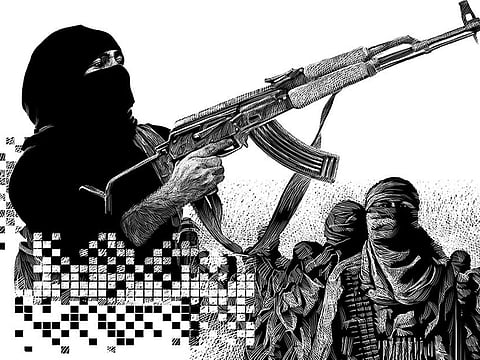Daesh exceeds its reach, but the roots of other groups go deeper
Unprecedented atrocities carried out by Daesh are an inspiration to others

Before the 9/11 attacks, however, Al Qaida had spent nearly 20 years building up contacts and cells in Sudan, Afghanistan, Pakistan, Yemen and Saudi Arabia. It had taken part in the war against the Soviets in Afghanistan. The organisation had developed deep roots, recruiting local militants to run their franchises, training bomb-makers and marrying into local communities.
The history of Daesh goes back to the war that followed the US invasion of Iraq in 2003, when militants led by Abu Musab Al Zarqawi adopted the Al Qaida franchise. Its incredible success in the past 12 months has so far been confined to Iraq and Syria, where political chaos and a civil war have created fertile conditions for expansion. Daesh may have 18,000 foreign fighters from 90 countries in its ranks, according to US officials, but it has no roots in India, Pakistan, Central Asia or north Africa — at least not yet.
New terror groups such as Daesh often find it difficult to garner support in regions where longstanding local Islamist groups have been fighting for years. Pakistan, Afghanistan and Chechnya have been awash with similar groups for the past four decades. They have no need or desire to surrender leadership, manpower and finances to an outsider such as Daesh, no matter how prestigious it may be at the moment.
— Financial Times
Ahmed Rashid is the author of several books about Afghanistan and Pakistan, including Pakistan on the Brink.



